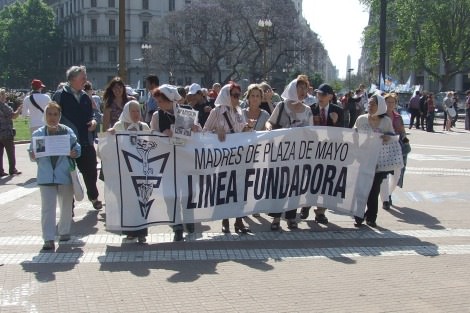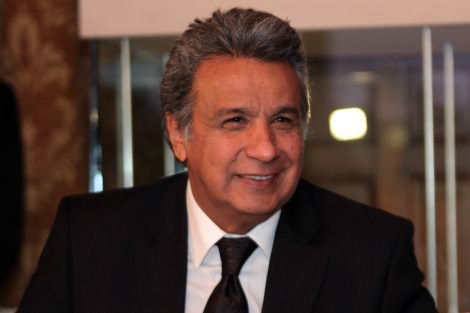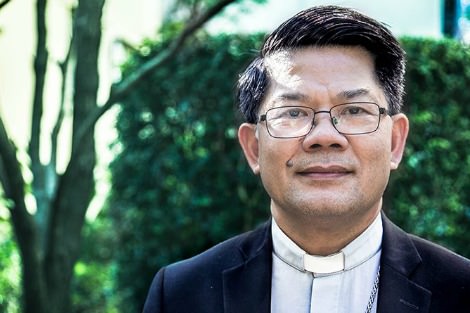Keywords: Communication
There are more than 200 results, only the first 200 are displayed here.
-

MEDIA
- Barry Gittins
- 16 June 2017
4 Comments
An article focusing on the 2013 Boston Marathon bombings reported that people 'exposed to more than six hours of daily media coverage of the tragedy were more likely to experience symptoms of acute stress than those directly affected by the event'. News junkies, or those who saw extended coverage, were found to be worse off than those who actually survived the bombings. This is sobering as we consider how we deal with our children's exposure to traumatic events playing out on TV news.
READ MORE 
-

ARTS AND CULTURE
- Sarah Klenbort
- 15 June 2017
4 Comments
On a recent tour of Vaucluse House in Sydney's east, I couldn't help but notice, in every bedroom, a writing desk. I imagined Sarah Wentworth scribbling away with inkpot and pen 180 years ago. I wonder if the Wentworths went straight to their writing desks first thing in the morning, the way some people check their phones? The desire to receive news from someone somewhere else is century's old. In 1850 Tasmania had 11 newspapers, for a population of 70,000.
READ MORE 
-

AUSTRALIA
- Frank Brennan
- 31 May 2017
6 Comments
Indigenous leaders this last week have called for the creation of two new legal entities. They want a First Nations Voice enshrined in the Constitution, and a Makarrata Commission set up by legislation. The Makarrata Commission would supervise agreement making between governments and First Nations and engage in truth telling about history. The envisaged destination is a national Makarrata (or treaty). So the immediate constitutional issue is the creation of the First Nations Voice. There is no point in proceeding with a referendum on a question which fails to win the approval of Indigenous Australia. Neither is there any point in proceeding with a referendum which is unlikely to win the approval of the voting public.
READ MORE
-

AUSTRALIA
- Andrew Hamilton
- 25 May 2017
7 Comments
In each of us is a personal centre able to reflect, to wonder, to explore the world and to evaluate it, to long and to love, to make decisions, and to engage freely with other human beings. Privacy is the gate that allows us to leave and others to enter the garden of our deepest selves. If it is torn off its hinges we shall live on a shallow level, preoccupied with defending ourselves. That is why the invasion of our privacy by governments and corporations in order to control our lives is unjustifiable.
READ MORE 
-

AUSTRALIA
- Barry Gittins
- 25 May 2017
7 Comments
Australian kids are being bashed, raped, starved, scorned and otherwise treated with no dignity or kindness. The study states it is not simply a case of one-off abuse, noting that 'research has demonstrated that maltreatment sub-types seldom occur in isolation (e.g. sexual abuse is often accompanied by psychological maltreatment or physical abuse)'. That is difficult reading. It makes me sick to write it. But the paper should, in a just society, serve as a catalyst for a national conversation.
READ MORE 
-

INTERNATIONAL
- Antonio Castillo
- 12 May 2017
It began 40 years ago on an autumn day, when 14 mothers gathered in Buenos Aires' Plaza de Mayo, in the city's central square. They were seeking an audience with the military authorities. They wanted to ask the whereabouts of their abducted children. 'Where are our children?' was a question that metamorphosed into a brave act of political resistance and defiance against the brutal 1976-1983 Argentinean military dictatorship. They have been performing this act of defiance ever since.
READ MORE 
-

INTERNATIONAL
- Antonio Castillo
- 02 March 2017
5 Comments
Ecuadoreans will head back to the polls on 2 April after this month's presidential election didn't come up with an outright winner. Against all projections Socialist Lenin Moreno, who served as Rafael Correa's vice president from 2007 to 2013, did very well. While he fell short of winning, there is a sense that the Ecuadorean 21st century socialism, an economic and political model instigated by Correa, is still popular; and in this Andean country of 15 million the majority are poor.
READ MORE 
-

ARTS AND CULTURE
- Barry Gittins
- 24 February 2017
7 Comments
Squarely back into the school year, dinner conversations with our kids have included strategies for dealing with bullies. A 2016 survey of 20,000 Australians students found one in four respondents reported being bullied, and bullying 'was more common for year 5 students and year 8' - the grade levels of our boy and girl respectively. I'd love to be the 'parent nonpareil', with the right words and advice, but it's not that simple. The variables of personality and situation mean there is no easy, perfect answer.
READ MORE 
-

RELIGION
- Andrew Hamilton
- 22 February 2017
70 Comments
The most thought provoking testimony given during the Royal Commission's Catholic 'wrap up' was that by Vincent Long, Bishop of Parramatta. It was notable for its directness, honesty and the awareness it displayed of the importance of church culture. Bishop Long grew up in the Vietnamese Catholic Church and was afterwards chosen to lead the Australian Church. In his responses he focused particularly on clericalism and its role in giving license and cover to clerical abuse.
READ MORE 
-

AUSTRALIA
- Kasy Chambers
- 03 February 2017
12 Comments
Centrelink's new policy of automated online debt collection has been subject to conflicting reports. The Minister and the department head are sticking to the assertion that everything is working fine. Yet there is another version of the truth, seen in the growing list of people talking publicly about the distress caused to them by being falsely tageted. One difficulty with the process is that the adversarial manner that it set up is unlikely to allow Centrelink to learn from the cases it reviews.
READ MORE 
-

ENVIRONMENT
- Greg Foyster
- 02 February 2017
10 Comments
If climate change were a short-term problem, polarisation wouldn't be so crippling. One side could push a solution through parliament, and by the time the other side took power it might be a non-issue. But climate change is an extraordinarily long-term problem that requires massive investment in new infrastructure and consistent policy settings over decades. It needs a supermajority of support so years of work isn't undone with each change of government. That means getting conservatives on board.
READ MORE 
-

INTERNATIONAL
- Antonio Castillo
- 28 January 2017
6 Comments
Writing in the New York Times, renowned Mexican historian Enrique Krauze splendidly summed up the US conduct toward his country. 'For Mexico, the United States has been a difficult neighbour, sometimes violent, almost always arrogant, almost never respectful, rarely cooperative,' Krauze wrote. Donald Trump is the embodiment of all these. Trump has taken the US disrespect towards its Spanish-speaking neighbour to a level even Mexicans - a resigned bunch - won't put up with any longer.
READ MORE 